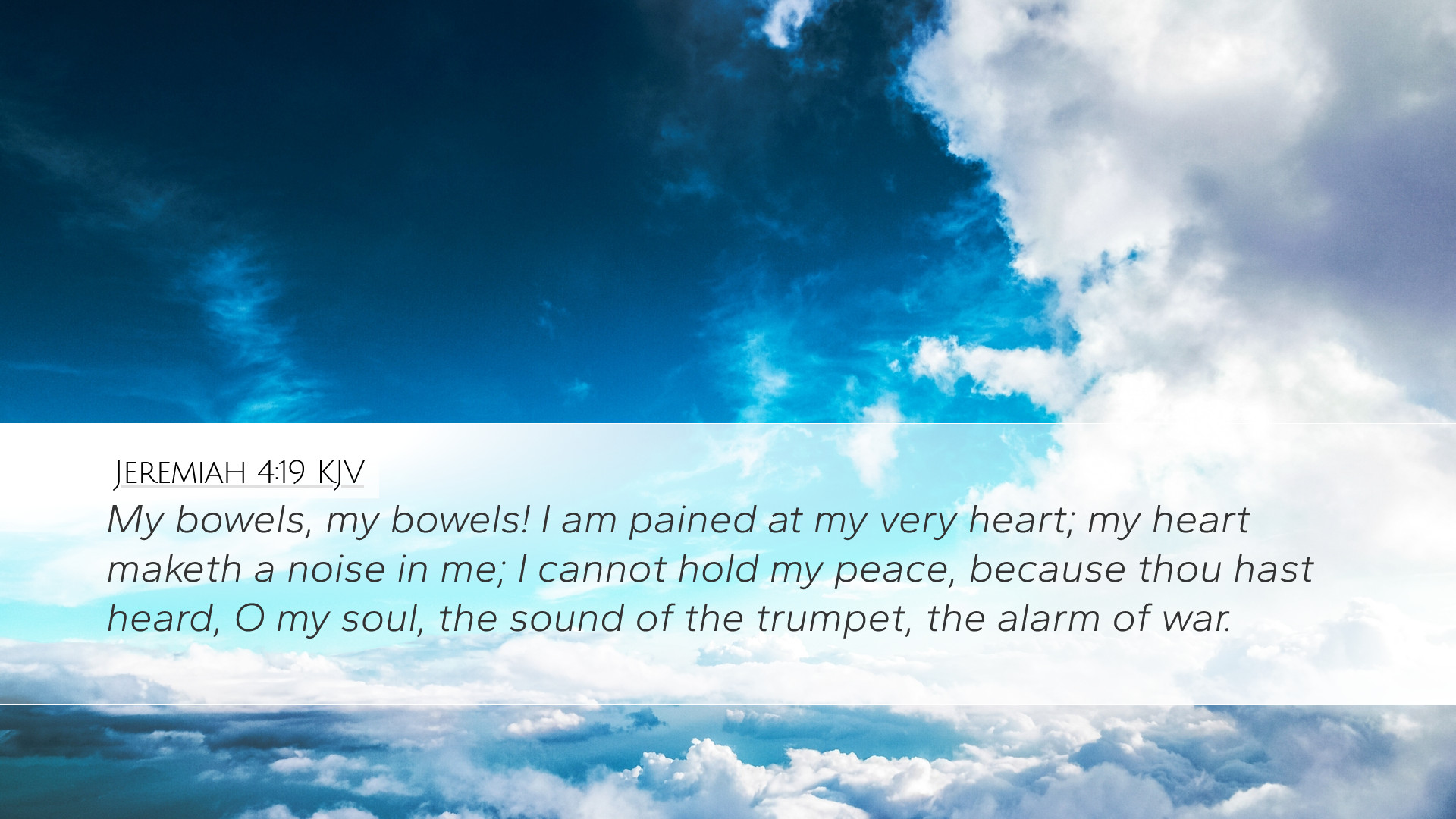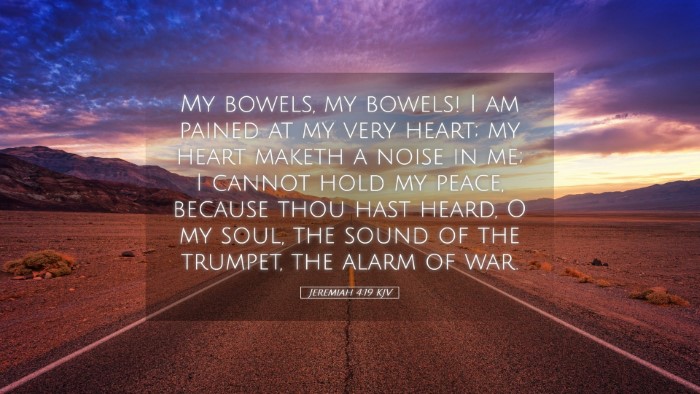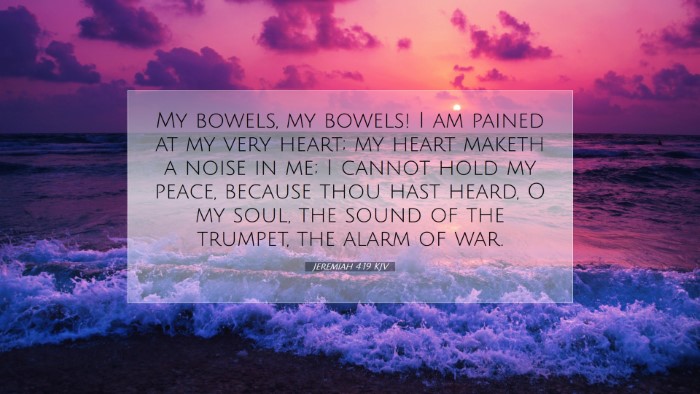Commentary on Jeremiah 4:19
Jeremiah 4:19 states:
"My anguish, my anguish! I writhe in pain! Oh, the walls of my heart! My heart is beating wildly; I cannot keep silent, for I hear the sound of the trumpet, the alarm of war."
Contextual Background
The Book of Jeremiah is a profound collection of prophecies and personal narratives from the prophet Jeremiah, conveying God's messages during a tumultuous period for Judah, leading up to the Babylonian exile. This particular verse illustrates the intense emotional state of the prophet as he foresees impending judgment and calamity upon his people.
Emotional Turmoil
Matthew Henry emphasizes the weight of Jeremiah’s sorrow, noting that his anguish is not only for personal suffering but for the collective fate of his nation. The repetition of "anguish" underscores the depth of Jeremiah's grief, indicating that his heart is broken over the sins of Israel and the resultant divine judgment.
Henry elaborates that Jeremiah feels a physical manifestation of his emotional pain, suggesting that true prophetic sensitivity involves an empathetic response to one's community. This agony highlights the nature of God's heart as well, who grieves over the disobedience of His people.
Symbolism of the Heart
Albert Barnes provides insight into the imagery of the heart in this verse. The heart, in biblical literature, often symbolizes the seat of emotions and will. Barnes notes that the tumult within Jeremiah reflects both personal unease and the agony for a nation that has turned away from God.
The phrase "my heart is beating wildly" evokes a sense of urgency. This represents not only the imminent danger but also Jeremiah's prophetic role where he is compelled to warn the people, realizing that inaction could lead to greater calamity. His heart, therefore, serves as both an instrument of warning and a vessel of sorrow.
The Alarm of War
Adam Clarke focuses on the specific reference to the "sound of the trumpet" as a call to arms. In ancient Israel, the trumpet served multiple purposes: signaling gatherings, important announcements, and warnings of danger. Clarke notes that the trumpet's blast signifies not just physical war but also spiritual and moral warfare that has ravaged the hearts of the people.
This metaphorical application of war extends beyond the battlefield to signify spiritual conflict—a call to repentance amidst impending destruction. Clarke insists that the urgency in Jeremiah’s voice beckons the people to awaken from their spiritual lethargy.
Interpretive Applications
Understanding Jeremiah 4:19 invites pastors, students, and theologians to reflect on a few critical themes:
- The Weight of Prophetic Responsibility: Those called to share God’s message may find themselves bearing heavy burdens for others. The emotional experience of Jeremiah is a reminder of the toll that prophetic ministry can invoke.
- The Call to Awareness: Just as the trumpet signals danger, spiritual leaders today must sound the alarm against immorality and indifference within the church and society at large.
- The Centrality of Heart in Worship: The focus on the heart emphasizes that true worship and relationship with God must come from a deeply affected emotional and spiritual awareness. It challenges believers to evaluate their own hearts before God.
- Hope in Despair: While this passage highlights anguish and impending judgment, there exists a concurrent theme of hope and restoration that exists throughout Jeremiah’s prophecies, enabling believers to pursue God in repentance.
Conclusion
In Jeremiah 4:19, we witness the profound internal conflict and spiritual urgency within a prophet who represents God’s voice to His people. The richness of the text, combined with the insights gained from public domain commentaries, beckons modern readers to explore the depths of their own hearts and the call to action in their spiritual lives. As such, this verse serves as both a lament and a prophetic call, resonating with the universal themes of sorrow for sin and the pressing need for divine intervention.


